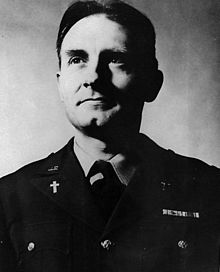Va, pensiero from Nabucco by Giuseppe Verdi
This recording of Va, pensiero, also known as The Chorus of the Hebrew Slaves, from Verdi's opera Nabucco was made as a tribute to Italy's medical workers and others fighting Covid-19 in that country. The Wikipedia article on the aria, which includes the Italian lyrics with an English translation, notes Verdi composed Nabucco at a difficult moment in his life. His wife and small children had all just died of various illnesses. Despite a purported vow to abstain from opera-writing, he had contracted with La Scala to write another opera and the director, Bartolomeo Merelli, forced the libretto into his hands.
There is a touching image at 4:40 of a medic cradling Italy as a new-born child.
I first became familiar with this beautiful chorus back in the 1950s when it was regularly played on Hospitals Requests on Wednesdays at lunch time on Radio Éireann, Ireland's state-owned national radio station.
The libretto of the opera, which is set in the Babylonian captivity of the Jewish people around 600 BC, is by Temistocle Solera who was inspired by Psalm 137 [136]. Here is the Grail translation, used in the English language versions of The Divine Office (The Breviary).
By the rivers of Babylon
there we sat and wept, remembering Sion;
on the poplars that grew there
we hung up our harps.
For it was there that they asked us,
our captors, for songs,
our oppressors, for joy,
'Sing to us,' they said,
one of Sion's songs.
O how could we sing
the song of the Lord
on alien soil?
If I forget you, Jerusalem,
let my right hand wither!
O let my tongue
cleave to my mouth
if I remember you not,
if I prize not Jerusalem
above all my joys!
St Teresa of Ávila, who lived
from 1515 to 1582 in Spain, could never have imagined the internet, though if
she were around today I'm certain that she'd be involved in this digital continent, as Pope Benedict calls it, and as a woman who travelled
considerably, despite being a contemplative nun, she would certain journey
along the digital highways - las calles digitales - of Pope Francis.
in 2014 83 followers of St
Teresa, Discalced Carmelite nuns from 24 countries, created a virtual
choir to sing and record the saint's poem Nada
te turbe - Let nothing disturb you to mark the 500th anniversary of her birth. She was born on 28 March 1515. An interesting piece of trivia is that she died on the night of 4-15 October 1582 when Pope Gregory XIII switched from the Julian calendar to the one named after him in what was a correction of the older one.
Sr Claire Sokol of the Carmelites in
Reno, Nevada, wrote the music.
Though this is not a 'Covid-19' initiative, the words of St Teresa are very appropriate for what the whole world is living through right now.
Nada te
turbe Let nothing disturb you
by St
Teresa of Ávila
Nada te
turbe,
nada te
espante,
todo se
pasa,
Dios no
se muda;
la
paciencia
todo lo
alcanza;
quien a
Dios tiene
nada le
falta:
Sólo
Dios basta.
Let nothing disturb you,
let nothing frighten you,
everything passes,
but God stays.
Patience reaches it all;
he who has God
nothing lacks:
God alone suffices.
Eleva
tu pensamiento,
al
cielo sube,
por
nada te acongojes,
nada te
turbe.
Lift your thinking,
raise up to heaven,
let nothing anguish you,
let nothing disturb you.
A
Jesucristo sigue
con
pecho grande,
y,
venga lo que venga,
nada te
espante.
Follow Jesus Christ
with an open heart,
and, no matter what may come,
let nothing frighten you.
¿Ves la
gloria del mundo?
Es
gloria vana;
nada
tiene de estable,
todo se
pasa.
See the glory of the world?
It's vainglory;
it is not everlasting,
everything passes.
Aspira
a lo celeste,
que
siempre dura;
fiel y
rico en promesas,
Dios no
se muda.
Yearn for the celestial
that lasts forever:
faithful and rich in promises,
God doesn't change.
Ámala
cual merece
bondad
inmensa;
pero no
hay amor fino
sin la
paciencia.
Love it the way it deserves
immense kindness;
but there is not fine love
without the patience.
Confianza
y fe viva
mantenga
el alma,
que
quien cree y espera
todo lo
alcanza.
Confidence and a live faith
let the soul maintain,
that he who believes and hopes
reaches it all.
Del
infierno acosado
aunque
se viere,
burlará
sus furores
quien a
Dios tiene.
Although harassed by hell
one may see himself,
he who has God
will defeat its rage.
Vénganle
desamparos,
cruces,
desgracias;
siendo
Dios tu tesoro
nada te
falta.
Come abandonment,
crosses, misfortune;
God being your treasure,
you lack nothing.
Id,
pues, bienes del mundo;
id
dichas vanas;
aunque
todo lo pierda,
sólo
Dios basta.
Go, then, wordly goods
go, vain happiness;
even if everything is lost
God alone suffices.
Berliner Luft by Paul Lincke
Every summer the Berlin Philharmoniker give a concert in the Waldbühne, an amphitheatre in Berlin. They play a programme of classical music, most of it of a serious nature, but always end with Berliner Luft - Berlin Air, from an operetta written by Paul Lincke in 1899. The song has become the unofficial anthem of the city. It has no deep significance whatever. But as you can see in the video, made in those 'far off' days of the pre-social distancing era, it's a piece of music than can bring a smile to anyone's face and create a moment of happy community between the musicians and the audience, and between the generations. The conductor, Gustavo Dudamel, is from Venezuela. He's enjoying it more than anyone else. You enjoy it too!



